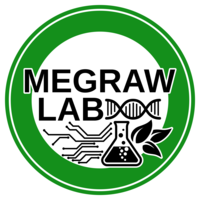| Title | microRNAs exhibit high frequency genomic alterations in human cancer. |
| Publication Type | Journal Article |
| Year of Publication | 2006 |
| Authors | Zhang, L, Huang, J, Yang, N, Greshock, J, Megraw, MS, Giannakakis, A, Liang, S, Naylor, TL, Barchetti, A, Ward, MR, Yao, G, Medina, A, O'brien-Jenkins, A, Katsaros, D, Hatzigeorgiou, A, Gimotty, PA, Weber, BL, Coukos, G |
| Journal | Proc Natl Acad Sci U S A |
| Volume | 103 |
| Issue | 24 |
| Pagination | 9136-41 |
| Date Published | 2006 Jun 13 |
| ISSN | 0027-8424 |
| Keywords | Breast Neoplasms, Female, Gene Dosage, Gene Expression Profiling, Humans, MicroRNAs, Neoplasms, Nucleic Acid Hybridization, Oligonucleotide Array Sequence Analysis, Ovarian Neoplasms, Statistics as Topic |
| Abstract | MicroRNAs (miRNAs) are endogenous noncoding RNAs, which negatively regulate gene expression. To determine genomewide miRNA DNA copy number abnormalities in cancer, 283 known human miRNA genes were analyzed by high-resolution array-based comparative genomic hybridization in 227 human ovarian cancer, breast cancer, and melanoma specimens. A high proportion of genomic loci containing miRNA genes exhibited DNA copy number alterations in ovarian cancer (37.1%), breast cancer (72.8%), and melanoma (85.9%), where copy number alterations observed in >15% tumors were considered significant for each miRNA gene. We identified 41 miRNA genes with gene copy number changes that were shared among the three cancer types (26 with gains and 15 with losses) as well as miRNA genes with copy number changes that were unique to each tumor type. Importantly, we show that miRNA copy changes correlate with miRNA expression. Finally, we identified high frequency copy number abnormalities of Dicer1, Argonaute2, and other miRNA-associated genes in breast and ovarian cancer as well as melanoma. These findings support the notion that copy number alterations of miRNAs and their regulatory genes are highly prevalent in cancer and may account partly for the frequent miRNA gene deregulation reported in several tumor types. |
| DOI | 10.1073/pnas.0508889103 |
| Alternate Journal | Proc. Natl. Acad. Sci. U.S.A. |
| PubMed ID | 16754881 |
| PubMed Central ID | PMC1474008 |
| Grant List | P50-CA083638 / CA / NCI NIH HHS / United States P50-CA093372 / CA / NCI NIH HHS / United States |
microRNAs exhibit high frequency genomic alterations in human cancer.
Submitted by Megraw Lab Admin on Tue, 2016-07-12 22:19

